“Playing chess, not checkers.”
You’ve probably heard this quote before, or at least a variation of it.
For years, chess and checkers have fascinated strategic minds.
While both games share a similar board and turn-based playing style, they clearly differ in other aspects.
In this article, we will examine and compare the two popular games.
Shared Foundations: Simple Beginnings
At first glance, chess and checkers appear quite similar. Both games are played on an 8×8 board and follow a turn-based system where each player moves one piece per turn.
The objective is to outmaneuver the opponent and control the board, making smart tactical decisions to achieve victory.
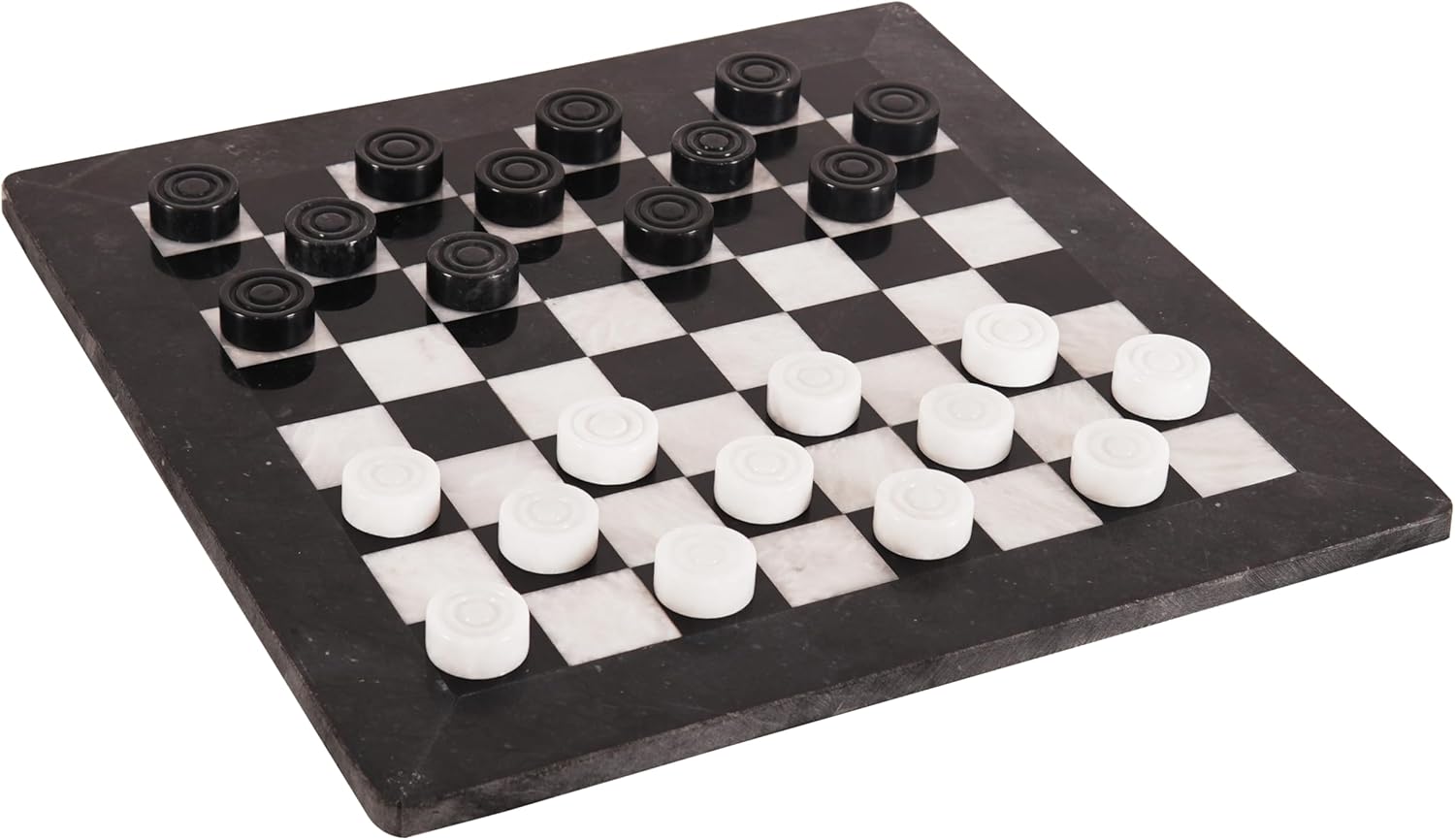
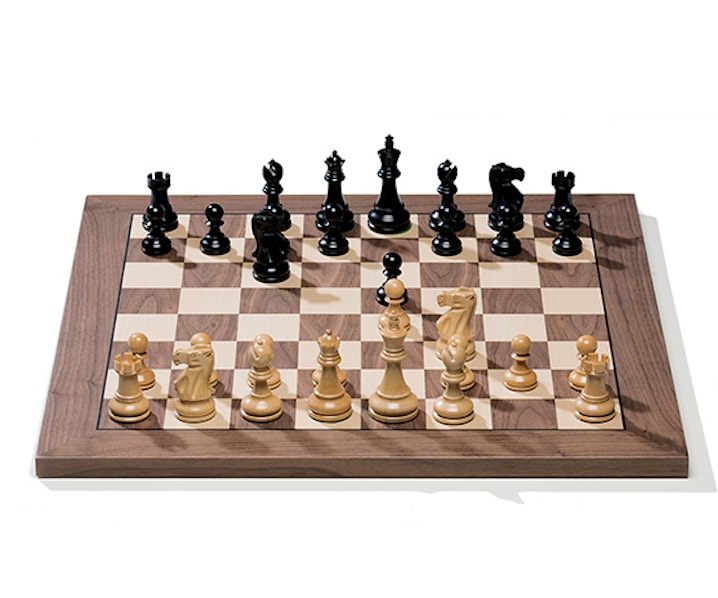
However, despite these similarities, each game’s unfolding is quite different.
While checkers focus on diagonal movement and capture through jumps, chess introduces a variety of piece movements, each with its strategic potential.
Strategic Depth: Where They Diverge
Chess and Checkers are both board games. They both require at least two players to play and involve strategic planning and movements.
However, they are not completely the same. Chess and Checkers both have their distinct characteristics and rules. Let’s take a look at these points of divergence between playing chess and checkers.
Complexity of Movement
One of the most significant differences between chess and checkers is the movement of pieces.
In checkers, all pieces move diagonally, and capturing an opponent’s piece is mandatory when possible.
Chess, on the other hand, features six different types of pieces, each with unique movement rules, leading to a much more complex and varied game.
For instance, the knight moves in an “L” shape, while the queen is free to move in any direction. The flexibility of playing chess allows for an endless array of strategies and counterstrategies.
Strategic Possibilities
When it comes to chess vs checkers strategy, chess offers significantly more long-term planning.
Players must consider opening theory, middle-game tactics, and endgame precision, while checkers focuses more on short-term tactical play.
Checkers’ strategies often revolve around forcing captures and positioning pieces to become “kings” (which gain additional movement).
Chess, on the other hand, involves deeper calculation, positional play, and strategic sacrifices to gain material or positional advantage.
Learning Curves
The chess vs. checkers complexity debate is interesting. Checkers is easier to learn and master due to its limited piece types and movement rules.
Most new players can grasp checkers quickly and start playing at a competitive level within a short time.
Chess, however, has a steeper learning curve. To improve, players must study openings, chess tactics, and endgames. This is why chess is harder to master and requires years of practice and study to reach an advanced level.
Common Misconceptions: Debunking the Myths
Many believe checkers is a “simpler” game, but this isn’t entirely true. While checkers has fewer piece types and movement rules, the game can still be highly strategic.
Another misconception is that chess is exclusively for intellectuals. While the game does reward deep thinking, anyone can learn and enjoy it at any level.
The key to success in both games is pattern recognition, strategic planning, and a willingness to improve.
Some believe that chess is a slow, boring game. While it is true that some chess formats, like Classical and Correspondence, tend to be slow, faster time formats like Blitz and Bullet introduce speed and excitement.
Online platforms also allow games to be played in minutes and even seconds, making chess as thrilling as any fast-paced game.
People have been known to run from chess as they deem it too difficult to learn. But this couldn’t be further from the truth.
While it takes a lot of work to master, learning how to play chess is relatively easy, and beginners can grasp the basics in a single session and then improve over time.
You don’t need to memorize countless openings or study hundreds of grandmaster games to enjoy playing chess.
The Enduring Appeal: Why They Both Captivate
Despite their differences, chess and checkers continue attracting millions of players worldwide.
Chess offers a deep intellectual challenge, while checkers provides a fast-paced and tactical experience.

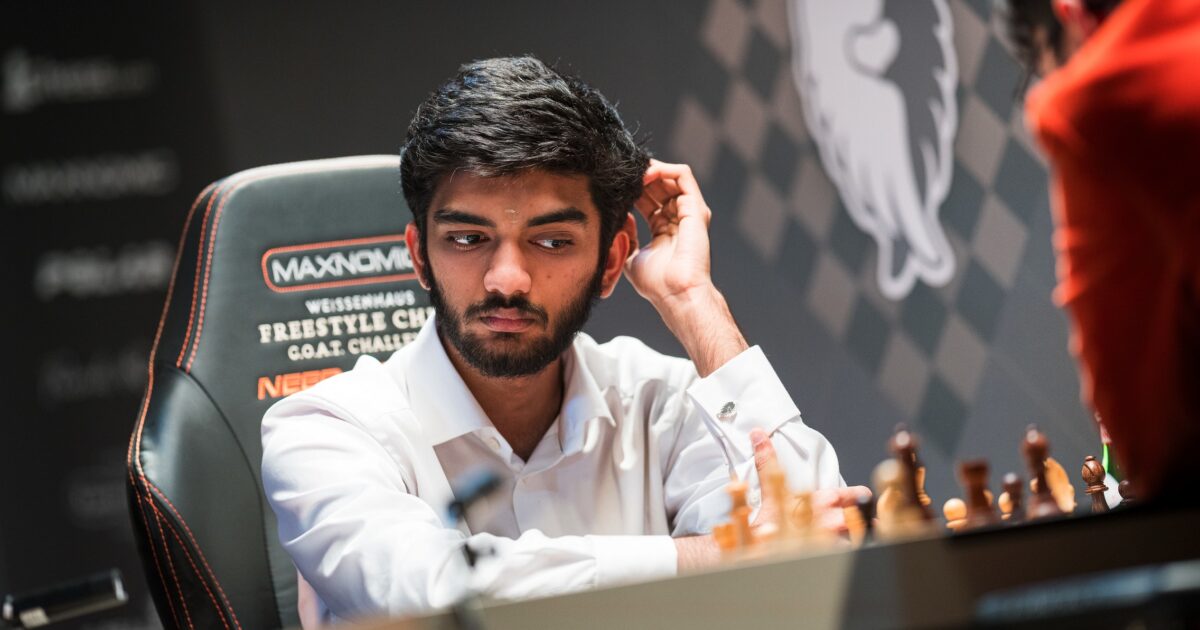
Chess enthusiasts appreciate the game’s blend of creativity, calculation, and strategic depth, whereas checkers players enjoy the fast decision-making and ability to quickly turn the tide of a game.
Both games have their place in the world of strategy, providing endless entertainment for players of all ages.
No matter which game you prefer, mastering either requires skill, practice, and understanding key strategies.
Chess vs. Checkers: Quick Comparison Chart
| Feature | Chess | Checkers |
| Board Size | 8×8 grid chessboards (64 squares) | 8×8 grid (64 squares) |
| Number of pieces | 16 per player (32 total) | 12 per player (24 total) |
| Types of pieces | 6 types (King, Queen, Rook, Bishop, Knight, Pawn) | 1 type (Man, which becomes a King when promoted) |
| Movement rules | Each piece has unique movement rules | Pieces move diagonally forward. Kings can move both forward and backward |
| Capturing mechanisms | Capture by replacing the opponent’s piece on a square | Capture by jumping over the opponent’s piece |
| Promotion | Pawns promote to a Queen (or other pieces except pawns) upon reaching the last rank | Regular pieces promote to Kings upon reaching the last row |
| Objective | Checkmate the opponent’s King or capture all the opponent’s pieces. | Capture all the opponent’s pieces or block their moves |
| Complexity | More complex with long-term planning, tactics, and deep strategy | Simpler, focusing on positioning and forced moves |
| Game length | Can last hours or minutes, depending on the time control | Usually shorter, often under an hour |
| Popularity | Considered the most strategic board game, International tournaments are held all over the world | Less complex but still competitive. Also has tournaments |
Conclusion: Appreciating Their Unique Roles
The similarities between chess and checkers make it easy to compare them, but ultimately, they serve different purposes.
Chess rewards deep thinking, patience, and a strong understanding of strategy, while checkers offers an exciting and accessible tactical experience.
Rather than viewing them as competitors, we should appreciate them as two incredible games that challenge our minds in different ways.
Whether you prefer the intricate calculations of chess or the rapid exchanges that make up checkers strategy, both games continue to stand the test of time.
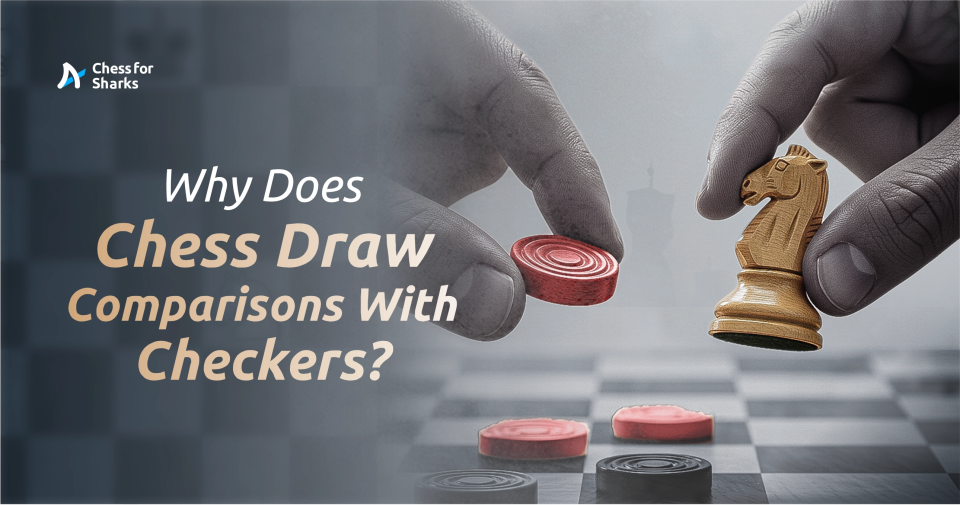




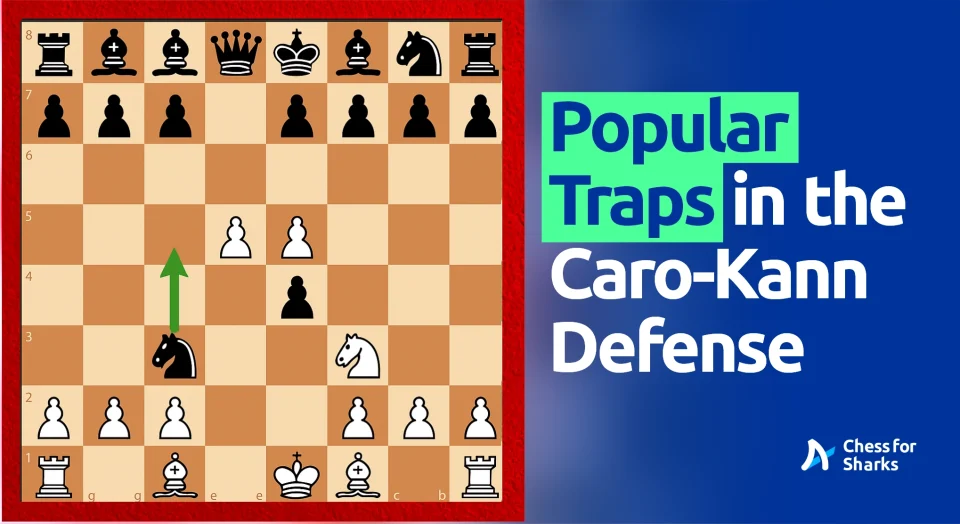
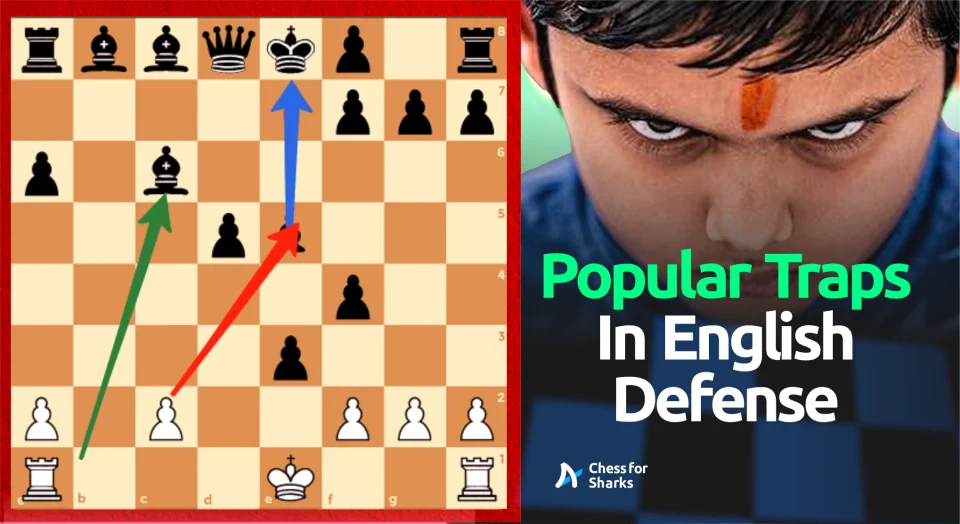
join the conversation